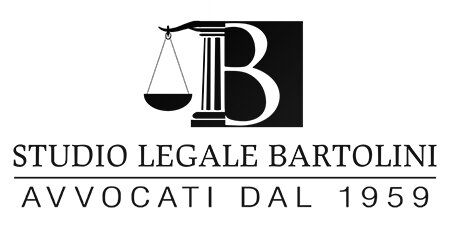Best Hiring & Firing Lawyers in Ancona
Share your needs with us, get contacted by law firms.
Free. Takes 2 min.
List of the best lawyers in Ancona, Italy
About Hiring & Firing Law in Ancona, Italy
In Ancona, Italy, the legal framework governing hiring and firing is deeply rooted in Italian labor law, which is designed to balance the rights and obligations of both employers and employees. This includes national regulations as well as any applicable local rulings. Typically, these laws cover everything from employment contracts, employee rights, termination procedures, and collective bargaining agreements. It's important for both employers and employees in Ancona to understand these regulations to ensure compliance and protect their rights.
Why You May Need a Lawyer
While hiring or firing an employee may seem straightforward, there are numerous legal complexities that can arise. You might need a lawyer if:
- You are drafting or reviewing employment contracts, especially where there might be intricate clauses or atypical arrangements.
- You face allegations of wrongful termination or discrimination.
- You need assistance with compliance regarding compensation, benefits, or employee classifications.
- There is a potential for disputes related to employment standards or workplace grievances.
- You are navigating the challenges of layoffs, restructuring, or mergers that might affect employment terms.
Local Laws Overview
Ancona, like the rest of Italy, follows a mix of national labor laws with regional nuances. Key aspects include:
- **Employment Contracts**: These must comply with national standards, including written contracts for long-term employment.
- **Termination and Notice**: Employers must provide just cause for termination, and appropriate notice periods are dictated by national law and collective bargaining agreements.
- **Non-Discrimination**: Rigorous laws prevent discrimination based on gender, age, ethnicity, disability, religion, or sexual orientation.
- **Severance**: Employees are entitled to severance pay under specific conditions, dependent on the contract type and the dismissal reason.
- **Collective Bargaining Agreements**: These are essential documents that can influence the general rights and duties within most sectors.
Frequently Asked Questions
What is required to legally hire an employee in Ancona?
Employers must draft a compliant employment contract, ensure the employee has the right to work in Italy, register the employee with social security, and adhere to collective bargaining agreements relevant to their industry.
How can an employer lawfully terminate an employee?
Termination generally requires a valid reason (such as misconduct or redundancy), observing any collective agreements, and providing the appropriate notice or compensation in lieu.
What is a collective bargaining agreement?
It is a contract between employers and trade unions that outlines terms of employment, rights, and responsibilities of both parties. It often supplements individual employment contracts.
Can an employee challenge a termination?
Yes. If an employee believes a termination was unjust, they can challenge it legally. A lawyer can help navigate this process, often involving labor courts.
What is the typical notice period for termination?
Notice periods depend on the employment contract and collective bargaining agreements, generally ranging from two weeks to several months.
Are probationary periods allowed?
Yes, Italian labor law permits probationary periods, typically lasting from three to six months, during which termination can be easier for both parties.
How are disputes between employers and employees resolved?
Disputes can be resolved through direct negotiation, mediation, or through the labor courts if necessary.
What happens in the case of a company merger or acquisition?
In these scenarios, employees have specific rights to maintain employment terms, or receive due compensation if they are laid off.
Does Italian law provide protection against wrongful termination?
Yes, Italy has strong protections against wrongful termination, often requiring employers to prove just cause or provide compensation.
How can an employer ensure compliance with labor laws?
Employers can ensure compliance by staying informed on labor laws, consulting with legal experts, and regularly revising employment practices in line with current laws and regulations.
Additional Resources
For those seeking more information, several resources can be helpful:
- **Italian Ministry of Labor and Social Policies**: Offers a wide range of information on national labor laws and employment rights.
- **Chambers of Commerce in Ancona**: Can provide guidance on local business practices and employer obligations.
- **National Institute for Social Security (INPS)**: Provides essential services related to social welfare and employee benefits.
- **Trade Unions**: Offer support and advice to employees on issues relating to employment rights and collective agreements.
Next Steps
If you require legal assistance on matters of hiring and firing, it is crucial to seek help from a legal expert in employment law. You can:
- **Consult a Lawyer**: Reach out to a lawyer specializing in labor law in Ancona to understand your legal position, rights, and obligations.
- **Attend Legal Clinics**: Look for legal clinics or workshops that offer free introductory sessions to help navigate employment law challenges.
- **Engage with Professional Associations**: Such associations often provide resources and recommendations for obtaining competent legal help.
Understanding the intricacies of employment law in Ancona is essential for minimizing risks, protecting rights, and ensuring smooth operations or transitions within any organization.
Lawzana helps you find the best lawyers and law firms in Ancona through a curated and pre-screened list of qualified legal professionals. Our platform offers rankings and detailed profiles of attorneys and law firms, allowing you to compare based on practice areas, including Hiring & Firing, experience, and client feedback.
Each profile includes a description of the firm's areas of practice, client reviews, team members and partners, year of establishment, spoken languages, office locations, contact information, social media presence, and any published articles or resources. Most firms on our platform speak English and are experienced in both local and international legal matters.
Get a quote from top-rated law firms in Ancona, Italy — quickly, securely, and without unnecessary hassle.
Disclaimer:
The information provided on this page is for general informational purposes only and does not constitute legal advice. While we strive to ensure the accuracy and relevance of the content, legal information may change over time, and interpretations of the law can vary. You should always consult with a qualified legal professional for advice specific to your situation.
We disclaim all liability for actions taken or not taken based on the content of this page. If you believe any information is incorrect or outdated, please contact us, and we will review and update it where appropriate.









